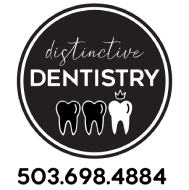Deep teeth cleaning is not the same thing as regular teeth cleaning. For most people, the phrase “deep teeth cleaning” evokes images of teeth whitening kits and a thorough brushing after a particularly fibrous meal. As your favorite dental practice in Clackamas, we hope that you do this anyway! However, deep tooth cleaning is something else entirely. It is gum therapy.
Deep teeth cleaning is a dental procedure that treats gum disease, while routine teeth cleaning is a procedure to prevent gum disease. During a standard dental cleaning, your dentist cleans the front, back, and sides of the tooth above and just below the gum line. Conversely, a deep teeth cleaning procedure involves cleaning between the teeth and gums down the roots, and involves removal of diseased gum tissue and root structure. It aims to remove tartar and any other build-up within the “pockets” between the root of the tooth and the gums.
Usually, healthy teeth and gums have a pocket or space between them that measures 3 millimeters or less. However, when you have gingivitis or other gum problems, this pocket becomes more expansive and has a higher chance of trapping tartar and plaque. If the pocket between your teeth and gums is 5 millimeters or more, you are a candidate for deep teeth cleaning.
Typically, regular teeth cleaning is completed in a single sitting. Since it is a preventative procedure, it is good practice to get your teeth cleaned every 6 months, along with an oral exam.
On the other hand, deep teeth cleaning requires two or more visits, depending on the extent of work needed on your teeth. The appointments involve gum or periodontal scaling, where the plaque and tartar are removed from below the gumline. Root planing is also completed, where the root of the tooth is cleaned and planed. This helps the gums reattach to the tooth and minimizes the size of the pocket for plaque and tartar build-up. Often at these visits the right and left sides will be treated at different visits so as to avoid anesthetizing the entire mouth in one sitting. A follow-up visit may be required a few weeks after the deep clean to ensure satisfactory results.
Regular teeth cleaning is non-invasive and hence not painful. In some cases, deep teeth cleaning can be a little uncomfortable, and patients with deeper pockets between the teeth and gums or sensitive teeth may experience more pain. Your dentist uses an anesthetic to numb the area before the procedure to minimize pain.
A regular teeth cleaning does not usually involve special aftercare instructions. Good oral hygiene practices ensure that your teeth stay healthy between visits.
After a deep teeth cleaning procedure, your teeth and gums will be sensitive. Your dentist will likely advise you to be gentle with your teeth and gums for some time. You may also have to take medication as prescribed by your doctor.
If a deep teeth cleaning does not resolve your gingivitis or gum disease, you may need further treatments or surgery. To avoid necessitating repeated deep teeth cleaning and surgery, ensure that you brush and floss your teeth (as recommended by your dentist) and go for regular oral examinations.
Dr. Klemann at Distinctive Dentistry of Clackamas can advise you on the best course of action to resolve your gum problems.


